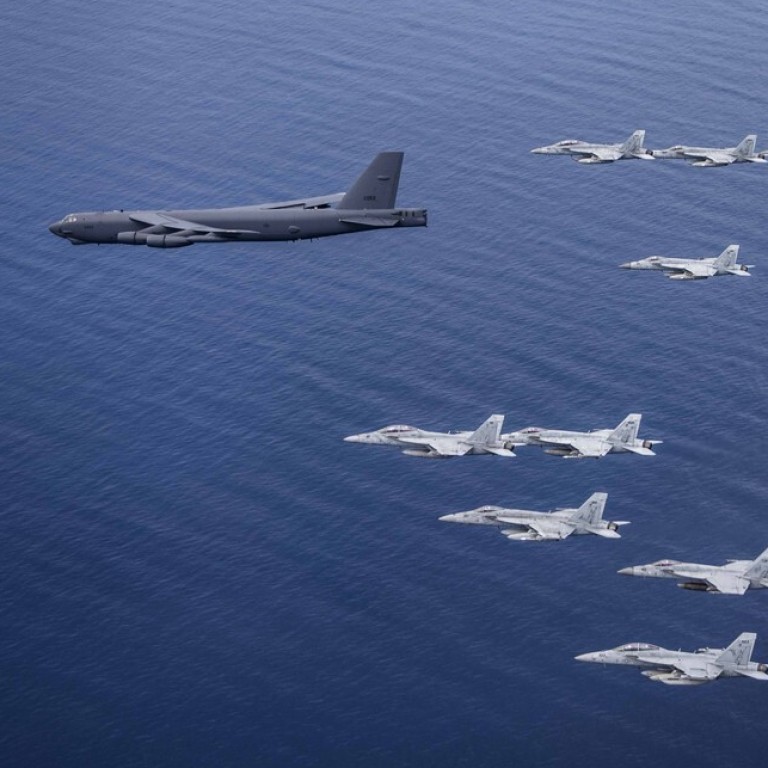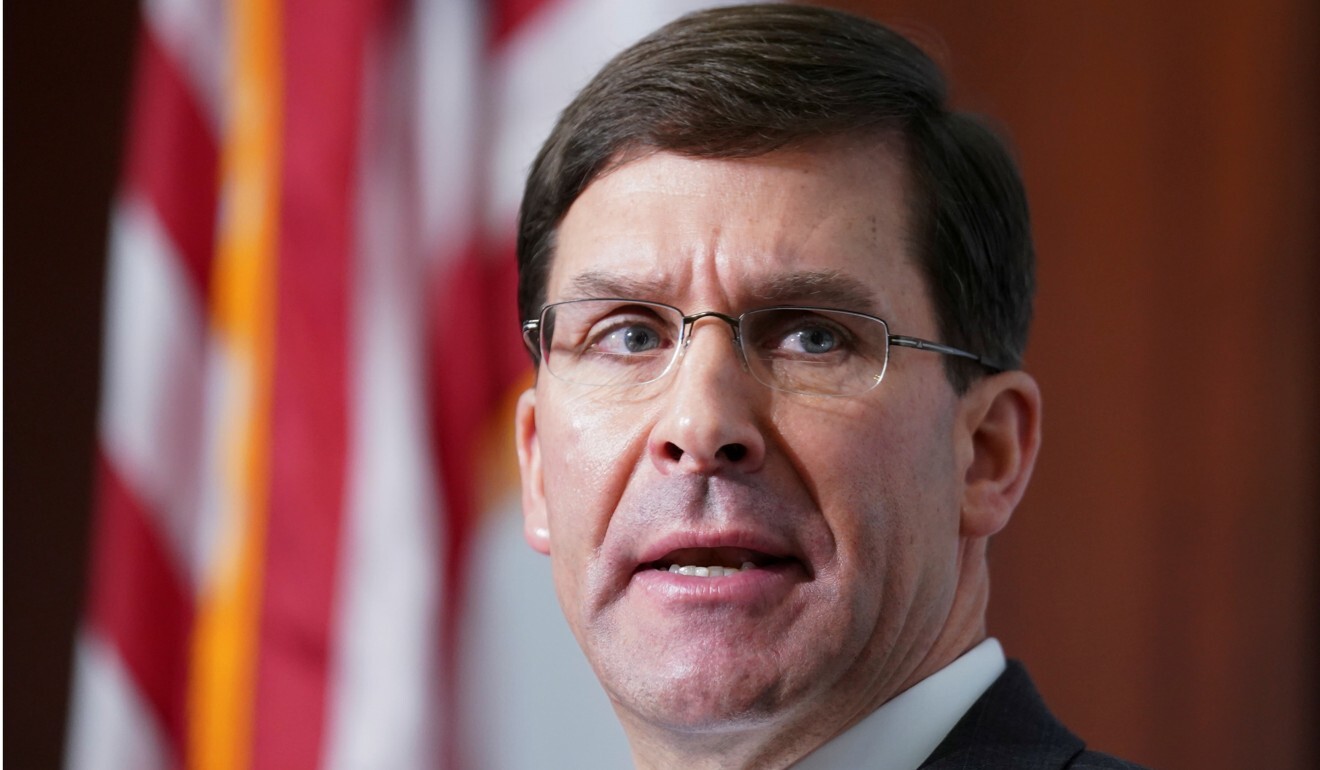
US-China relations: can US Defence Secretary Mark Esper’s visit to Beijing stop a cold war getting hot?
- Despite referring to China’s ‘bad behaviour’, Esper’s desire to visit suggests he is keen to see relations improve, observers say
- Source close to People’s Liberation Army says military doesn’t want ties to be driven by China’s ‘wolf warrior diplomacy’
China is likely to welcome a visit by US Defence Secretary Mark Esper as it may help to prevent the “cold war” raging between the two countries escalating into a hot war, analysts said.
“Shutting the consulate is a diplomatic issue, while Esper’s visit is a military-to-military affair,” he said. “The two things are not necessarily related.”
Speaking at an online security seminar, Esper said he hoped to make his first visit to China as defence minister “to enhance cooperation on areas of common interest, establish the systems necessary for crisis communications and reinforce our intentions to openly compete in the international system”.

Huang Jing, dean of the Institute of International and Regional Studies at Beijing Language and Culture University, said Esper’s visit could be seen as a positive response to Chinese Foreign Minister Wang Yi’s call for the two countries to seek reconciliation after months of conflict that have seen relations plunge to their lowest point for decades.
“There is consensus [among US politicians] to be tough on China, but Esper’s willingness to visit shows the US doesn’t want the ‘cold war’ to turn into a hot war,” he said.
Ezra Vogel, a Harvard professor and veteran Asia scholar, said in an interview published in Chinese nationalist tabloid Global Times at the weekend that “if there is a little scuffle in the South China Sea, it could soon escalate. And if the countries failed to control it, it could be devastating and everybody would lose. It is very scary”.
China’s foreign ministry said it had noted Esper’s remarks and considered “the military-to-military relationship between the two countries an important part of Sino-US diplomacy”.
“[We hope] the US will create a positive atmosphere for the two militaries’ dialogue,” ministry spokesman Wang Wenbin said on Wednesday.
Earlier this month, China criticised the US for stoking the flames of conflict in the region by rejecting its claim to the lion’s share of the South China Sea’s resources.
Collin Koh, a research fellow from the S Rajaratnam School of International Studies at Singapore’s Nanyang Technological University, said Esper’s plan to visit China before the end of the year showed the two sides were aware that political tensions could escalate into military conflict.
“There is an increased risk of military clashes between American and Chinese forces operating in regional hotspots like the South China Sea, and the general desire is to keep existing channels of confidence- and security-building measures open,” he said.
“I suspect that before Esper made his comments, the defence establishments of the two countries might have spoken to each other about a possible visit.”
However, sources close to China’s foreign ministry and military said they had not heard anything about a possible visit by Esper before his announcement on Tuesday.
“The PLA [People’s Liberation Army] really wants to build a better relationship with the US,” a source close to the military said.
“They don’t want the two countries’ military-to-military ties to be driven by [China’s] ‘wolf warrior diplomacy’, which could lead to confrontation,” said the person, who asked not to be named given the sensitivity of the issue.
Song agreed that Esper’s visit could help to reopen communication channels between the two countries.
“It’s unrealistic to expect the trip to solve all the deep-seated and complicated problems between China and the US, but at least it might help them to better understand each other and their bottom lines,” he said.


